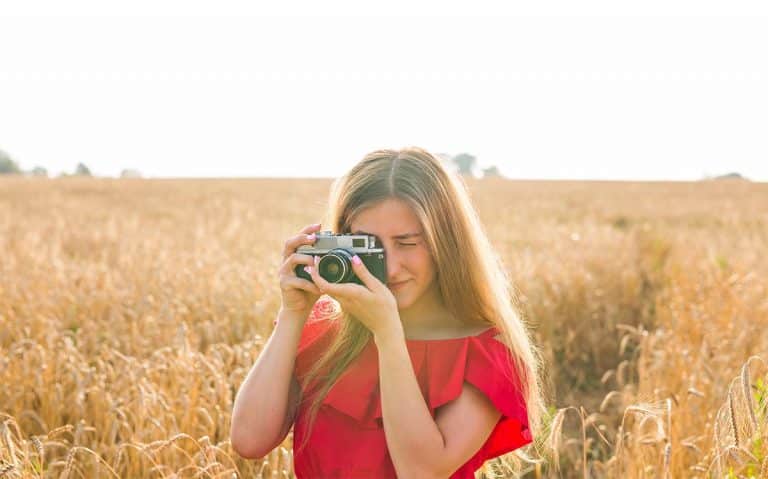Do you have a passion for photography? If you mess around with taking pictures on your phone and you enjoy editing and sharing special moments with friends, maybe it’s time to step up your game. Taking the step up from a small personal camera or your cell phone to a camera that offers better resolution and speed is something that can open up a whole new world of photography exploration for you. Here are just a few things you’ll need in order to get started as an amateur photographer.
Contents
Get Started as an Amateur Photographer
Finding the Right Camera
There are many different models and camera styles on the market today. With everything ranging from a point-and-click camera to an expensive wide-lens camera available, figuring out what is the best camera is for you and your new hobby can feel quite overwhelming. Some of the most popular types of cameras include:
- DSLR or digital single-lens reflex
- Mirrorless or Micro Four Thirds
The DSLR ranges from a nice beginner camera to an advanced camera for a professional photographer. The biggest benefit of a DSLR is that, with many models, you can interchange the camera’s lenses to accommodate whatever type of photography you will be doing in each session. Because the lens collects the light from your scene, you can choose a larger lens if you tend to be taking outdoor photos or you want your photo to look for true professional.
A Mirrorless camera doesn’t have a mirror inside the camera. Instead, it has a smaller body, making it more portable and easy to use. It’s basically a point-and-camera. This is a great option if you just want to have a fun experience with your camera. Because many high-end mirrorless cameras have a full-frame size, like many professional DSLRs, they can get close to the same results as many pricier higher-model cameras.
When camera shopping, the salesperson may have told you about the different aperture or F-Stop specs of each camera. If you’re new to photography, you are asking yourself “What’s an F-Stop?” It simply refers to how quickly light is allowed into the camera. Finding one that suits your needs shouldn’t be too difficult. This works in conjunction with the ISO on cameras. The higher the ISO, the more light that goes into the photograph. This reduces the likelihood of having to use a flash in dark conditions. In addition, choosing a camera with a high megapixel measure can equal better quality, sharper image. Having a high-resolution camera, no matter what the type, will result in clear, crisp photos.
Props and Location
If you’re looking to start photographing family and friends or special events in your life, you’ll want to consider what props to incorporate. Do you like to photograph babies or small children? If so, consider buying things like small wagons, buckets, chairs, and rocking horses to use as props. Scour antique shops and flea markets for vintage items that have the appeal and appearance you’re looking for. Also, consider different locations that offer a backdrop that creates a natural palette for your subjects. This could be a rock wall, garden, or fence that creates some contrast or interest in the background.
Processing Your Prints
An important factor when launching an amateur photography hobby is to have a good place to edit and process your prints. This starts with a photo-altering software program that you can use to edit your photos. You may just wish to edit them and then post them on your social media sites or blogs, or you may wish to send them as digital packages to friends and family. In some cases, you might want to actually print off your photos for framing or other uses. Choosing a professional printing company to do this is well worth the cost. They will use the proper photo paper and print it matte or glossy, depending on your preference.
Turning Your Passion into a Business
If you’ve been giving your photography hobby a go for quite a while, it may be time to take things to the next level—turning pro. Start by building a clientele that is suited to the work you enjoy doing. For example, if you like to work on just one subject at a time in a localized setting, you may be good at taking senior portraits. If you prefer to bring some group dynamics to your photography, wedding parties may be a good choice. If you enjoy working with babies and infants, you can choose this type of audience to focus on. Build a name for yourself by building your website, showcasing your best work and utilizing word-of-mouth advertising.
Getting your first camera is exciting. Use it and learn from it. After all, practice makes perfect!


